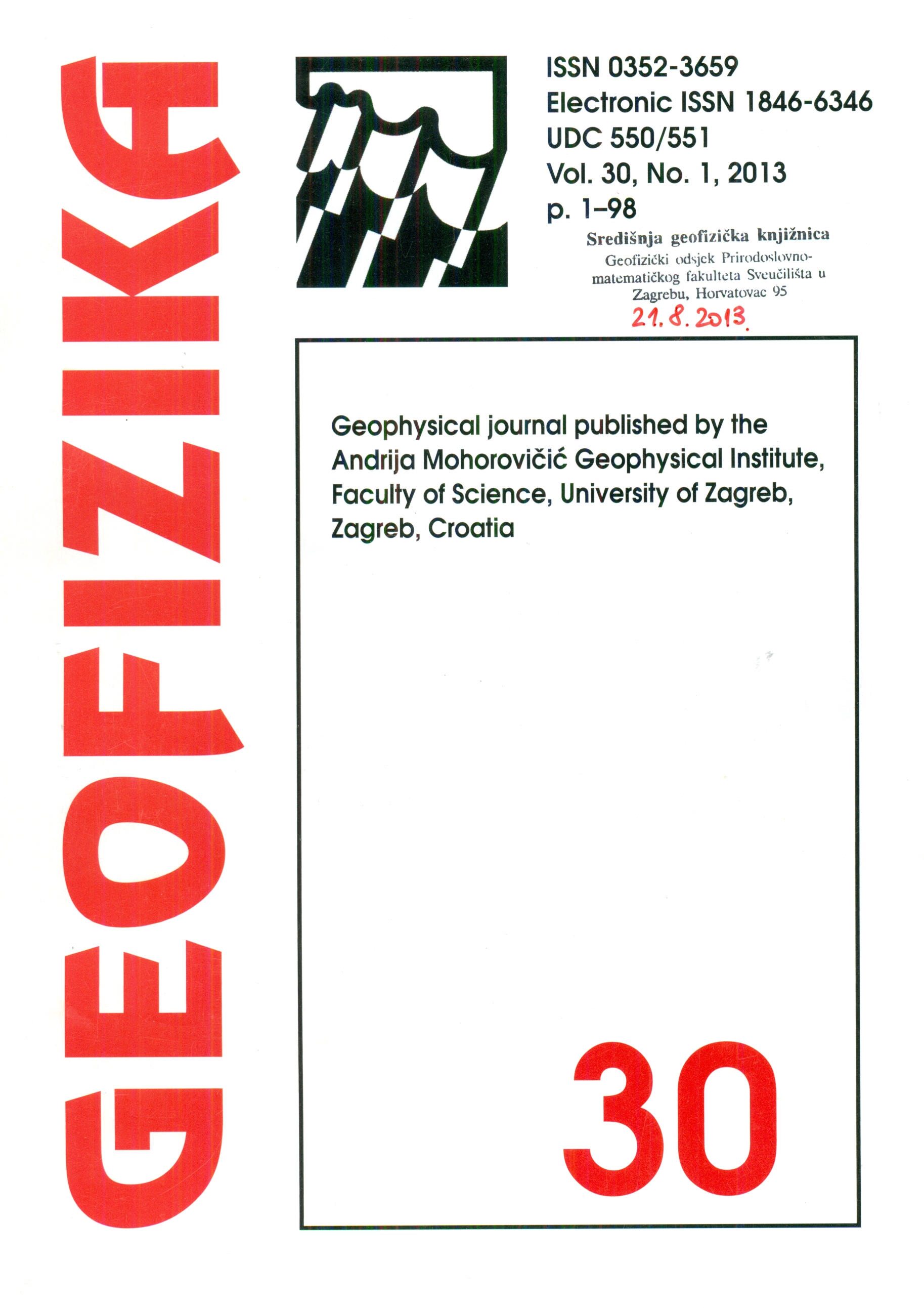Study of combined effects of sediment rheology and anticlinal basement topography on ground motion characteristics
Keywords:
simulation of viscoelastic seismic response, finite difference method, mode conversion, basement topography effects and local site effectsAbstract
A very peculiar damage patterns have been reported during Northridge earthquake of 1994 and Nisqually earthquake of 2001 caused by basement focusing. Similarly, basement de-focusing may cause lesser damage than the expectations but such inferences have not been reported. Further, as far as we know, no theoretical study related to de-focusing effects of anticlinal basement topography (ABT) is available in the literature. In order to fulfill this gap, this article presents the combined effects of sediment rheology and ABT on the SH- and SV-waves characteristics. The simulated results revealed an increase of de-amplification factors with distance travelled in basin above the ABT. The computed snapshots also confirmed amplitude de-amplification, diffraction and mode conversion of SV-wave. Elastic response revealed that the de-amplification factors caused by ABT were not frequency dependent. The average spectral de-amplification factors were more or less same for both the waves even after strong mode conversion of SV-wave at the lower part of ABT. Based on simulated results, it was inferred that the incorporation of effects of ABT in seismic hazard assessment is equally important as that of synclinal basement topography (SBT) effects for cost effective earthquake engineering.
Downloads
Published
Issue
Section
License
Copyright (c) 2021 Geofizika journal

This work is licensed under a Creative Commons Attribution-NonCommercial 4.0 International License.

